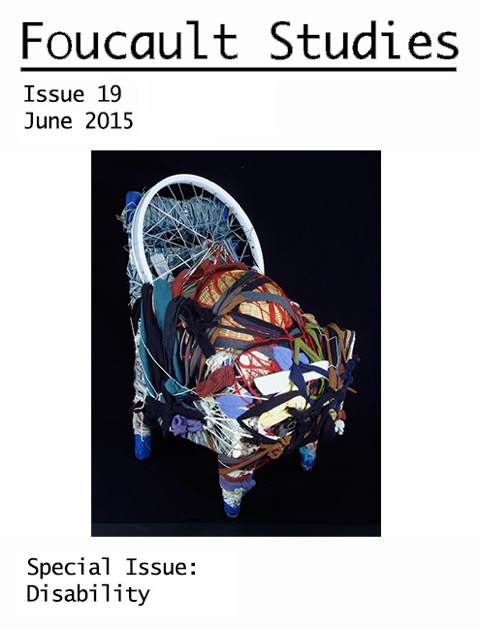Genealogies of Disability in Global Governance: A Foucauldian Critique of Disability and Development
DOI:
https://doi.org/10.22439/fs.v0i19.4825Keywords:
disability, development, disabled subject, global governance, discourse, power, inclusion, exclusionAbstract
In this article, I engage with the ways in which disability is governed within the Millennium Development Goals (MDGs) (United Nations 2000). Using a Foucauldian perspective on the governing of populations in modern states (Foucault 1991), I problematise this politics of disability and development by interrogating the ways in which biopower, through the constructions of modern development frameworks, has shaped our understanding of disability and impairment. I pursue this historical trajectory by tracing the emergence of the Global Burden of Diseases (GBD), a global study developed by the World Health Organization (WHO) and the World Bank in the 1990s (Murray and Lopez 1996). The forms of knowledge emerging in these global frameworks shed light on genealogies of disability in the twenty-first century. By re-visiting a postcolonial critique of Foucault’s conception of power in the context of Third World’s struggles for liberation (Said 1986), I suggest that a Foucauldian critique in disability and development could be deepened through its engagement with postcolonial studies. A critical and genealogical perspective on disability and development, I argue, is useful for understanding the government of disability and impairment in the intersections of global and local histories.Downloads
Published
2015-06-17
How to Cite
Nguyen, X.-T. (2015). Genealogies of Disability in Global Governance: A Foucauldian Critique of Disability and Development. Foucault Studies, (19), 67–83. https://doi.org/10.22439/fs.v0i19.4825
Issue
Section
Special Issue: New Work on Foucault and Disability
License
Authors retain copyright to their work, but assign the right of the first publication to Foucault Studies. The work is subject to a CC BY-NC-ND 4.0 license, but despite these restrictions, authors can take for granted that Foucault Studies will permit articles published in Foucault Studies to be translated or reprinted in another format such as a book providing a full reference is made to Foucault Studies as the original place of publication.



